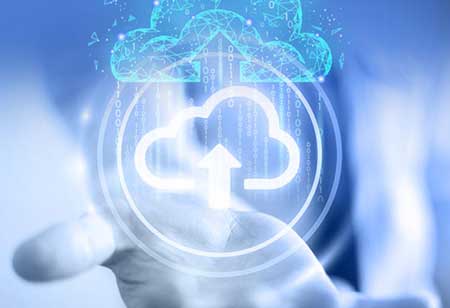THANK YOU FOR SUBSCRIBING
AI-Powered Transformations in Revolutionizing Remote and Hybrid Work Environments
The world is experiencing a significant shift in work models, with remote and hybrid work models becoming more prevalent.

By
Apac CIOOutlook | Wednesday, June 14, 2023
Stay ahead of the industry with exclusive feature stories on the top companies, expert insights and the latest news delivered straight to your inbox. Subscribe today.
Generative AI enhances remote and hybrid work with improved communication, productivity, knowledge management, and security. Organisations must manage risks to fully embrace AI's potential and reshape the future of work.
FREMONT, CA: The world is experiencing a significant shift in work models, with remote and hybrid work models becoming more prevalent. Artificial Intelligence (AI) technology has revolutionised remote and hybrid work by enhancing collaboration, productivity, and efficiency. AI-powered tools and technologies, such as virtual meeting platforms and project management systems, streamline remote collaboration, allowing professionals to focus on high-value activities, and boosting productivity and job satisfaction. Virtual assistants and chatbots provide support, while machine learning algorithms analyse data for decision-making and innovation.
AI-powered work environments adapt to individual preferences, optimizing work hours and promoting work-life balance. As AI evolves, it will reshape the future of work, empowering individuals and organisations to thrive in the digital age.
Seamless Collaboration and Communication
Hybrid and remote work models require innovative collaboration and communication approaches. AI-powered project management tools streamline tasks, improve coordination, and optimize workflows. AI-powered virtual meetings enhance interaction, productivity, and decision-making. Intelligent document management systems categorise, tag, and organize documents, saving time and effort. These technologies enable seamless interaction and effective teamwork across geographical boundaries.
AI-powered collaboration and communication in hybrid and remote work models are revolutionising communication and communication. AI-powered project management, virtual meeting enhancements, intelligent document management, chatbots, virtual assistants, and collaboration analytics help organisations overcome distance challenges and enable seamless interaction among team members. By leveraging AI technologies effectively, businesses can foster a collaborative culture, enhance productivity, and create a connected work environment regardless of physical location.
Enhanced Well-being and Work-Life Balance
AI integration in hybrid and remote work environments enhances employee well-being and work-life balance. AI-powered tools help with personalised scheduling, time management, intelligent workload distribution, and virtual wellness support. These tools help employees manage workloads, allocate resources efficiently, and maintain a healthy work-life balance. AI also promotes fairness and collaboration among team members, leading to increased productivity and job satisfaction. AI integration in hybrid and remote work environments has revolutionized employee well-being and work-life balance.
Virtual wellness assistants promote relaxation, mindfulness, and wellness, while remote collaboration and social connections enable seamless interaction. AI technology also offers performance insights, enabling employees to enhance skills and knowledge, leading to increased job satisfaction and a healthy work-life balance. Organisations must leverage these tools effectively to create work environments that promote employee well-being and empower individuals to thrive in their careers.
Enhanced Efficiency through Automation
Hybrid and remote work models require increased efficiency and productivity, with AI revolutionizing work through automation. AI-powered tools automate repetitive tasks, allowing employees to focus on higher-level tasks, increasing productivity and job satisfaction. AI-powered virtual assistants handle administrative tasks, streamline workflows, and provide real-time assistance. Data analysis and insights help manage vast amounts of data in hybrid and remote work environments. AI-driven algorithms can analyse large datasets, extract valuable insights, and identify patterns and trends.
They automate data analysis, workflow optimisation, and intelligent document management, improving efficiency and productivity in hybrid and remote work settings. By leveraging AI-powered virtual assistants, data analysis capabilities, and intelligent automation tools, organisations can increase productivity, improve job satisfaction, and focus on high-value activities.
Smart Workspaces and Personalised Experiences
AI integration in hybrid and remote work models enables smart workspaces and personalized experiences, improving engagement, satisfaction, and efficiency. AI-powered smart assistants automate tasks, intelligent workspace management adjusts lighting, temperature, and resource allocation based on employee preferences, and personalized learning platforms deliver tailored training and development programs. These technologies enhance energy efficiency and reduce costs, transforming the working environment and enhancing employee satisfaction. AI algorithms improve employee growth, engagement, and job satisfaction by suggesting relevant learning resources, using context-aware collaboration tools, and promoting employee well-being and work-life balance. These technologies optimize work schedules, optimise work patterns, and optimise work schedules, resulting in higher employee satisfaction, reduced burnout, and increased productivity. As organizations embrace AI technologies, the future of work will offer smarter, more personalized experiences, empowering employees and driving success.
Data Security and Privacy Considerations
AI revolutionises hybrid and remote work models, requiring organisations to address data security and privacy concerns. Key considerations include data encryption, secure cloud infrastructure, and access controls and authentication. Encryption ensures data protection, while secure communication channels safeguard sensitive information. Reputable cloud service providers prioritise data security and privacy, while multi-factor authentication, role-based access control, and user permission management ensure authorised access. Organisations must prioritise data security and privacy to mitigate risks associated with AI technologies in hybrid and remote work environments.
Robust access controls, ethical considerations, and regular security audits are essential components of a comprehensive data security strategy. By addressing these considerations, organizations can leverage AI's potential while maintaining confidentiality, integrity, and privacy, building trust, protecting user information, and ensuring compliance with data protection regulations.
The AI revolution in hybrid and remote work has transformed businesses by enhancing collaboration, communication, and efficiency, and creating personalized workspaces. AI-powered tools, virtual meetings, and intelligent document management systems improve teamwork and efficiency. However, organisations must address data security and privacy concerns to ensure a secure and adaptable work environment.





